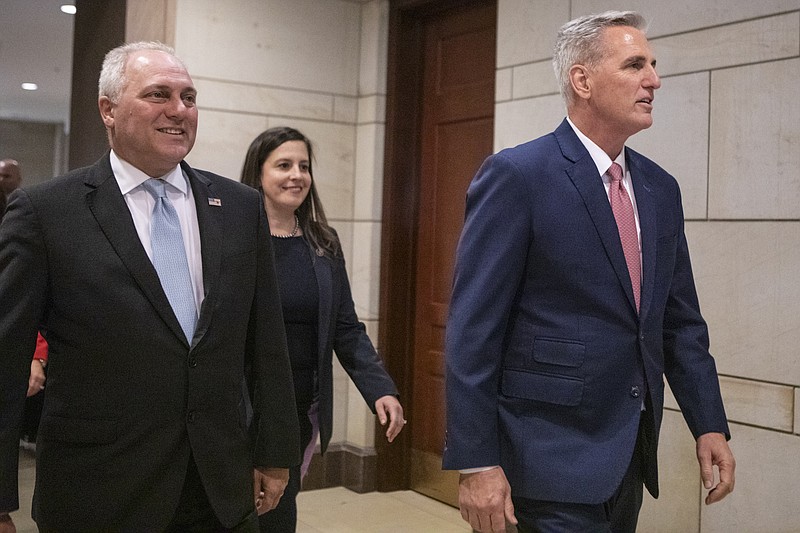For the past two years, Democratic Speaker Nancy Pelosi has conducted a political science class in how to manage the House of Representatives with a bare four-seat majority.
The result, backed by a Democratic White House and Senate, has been a spate of significant bipartisan legislation -- a long-sought infrastructure bill and measures spurring domestic chips production, expanding veterans' health programs and gun safety rules -- plus Democratic priorities like curbing drug prices and combatting climate change.
Now, Republican Kevin McCarthy is facing a similar challenge, assuming he can surmount the internal resistance that has left his ascent somewhat in doubt.
But his speakership is likely to be very different from Pelosi's, focusing much more on oversight and investigations than on legislation. That's because he'll be a Republican island in a Democratic sea, forced to confront a Democratic Senate and a Democratic president while barely able to control his fractious Republican House.
By all accounts, McCarthy, like Pelosi, is a prodigious fund-raiser but lacks the legislative skills she developed in 20 years as the Democrats' top leader.
As a result, the GOP-controlled House may encounter difficulty passing all but the most routine legislation, especially the appropriations bills that are needed to fund the government. And it may only be able to muster a majority to raise the legal ceiling on the national debt -- another necessity -- by attaching conditions unacceptable to the Senate and the president or working with the Democrats, something McCarthy has never been able to do.
Besides, not only do GOP leaders face pressures from the three dozen members of the conservative Freedom Caucus that sank two previous Republican speakers, but the election produced a handful of more moderate GOP members from predominantly Democratic states. Their priorities are likely to be different from those of the Freedom Caucus.
Among non-legislative items on the House GOP agenda: retaliatory moves against the outgoing Democratic majority, including an effort to remove several prominent Democrats from their committees.
It would be a response to the Democrats' ouster of right-wing firebrands Reps. Marjorie Taylor Greene of Georgia and Paul Gosar of Arizona from their committees for threatening Democratic lawmakers. The GOP plans to reinstate both, disband the Jan. 6 investigating committee and scrap measures the Democrats instituted to cope with the pandemic, like proxy voting and metal detectors.
Having such a minuscule GOP margin will repeatedly enable recalcitrant members to pressure McCarthy, like rival moderate and progressive Democratic factions did to Pelosi the past two years.
That's one reason for Republicans to choose the easier path of confrontation. Another might be pressure from former President Donald Trump, who has substantial influence with McCarthy and had a better record electing GOP House members than governors and senators.
But the Republicans will have to face the fact that, although they flipped House control, the results were far more red ripple than red wave. Their margin will rival the outgoing Democrats in having the smallest House majority in 70 years.
The margin was almost identical when the Democrats regained the House in 1954 in the first midterm election of President Dwight D. Eisenhower's administration, after Republican had held a similarly narrow majority the prior two years.
But the climate was far different, and their leader, Speaker Sam Rayburn, was a Texan who worked closely with fellow Texas natives Lyndon Johnson, the Senate Democratic leader, and Eisenhower.
Those kinds of cross-party relationships don't exist in today's hyper-partisan world, so McCarthy will be pretty much flying solo.
The Dallas Morning News
